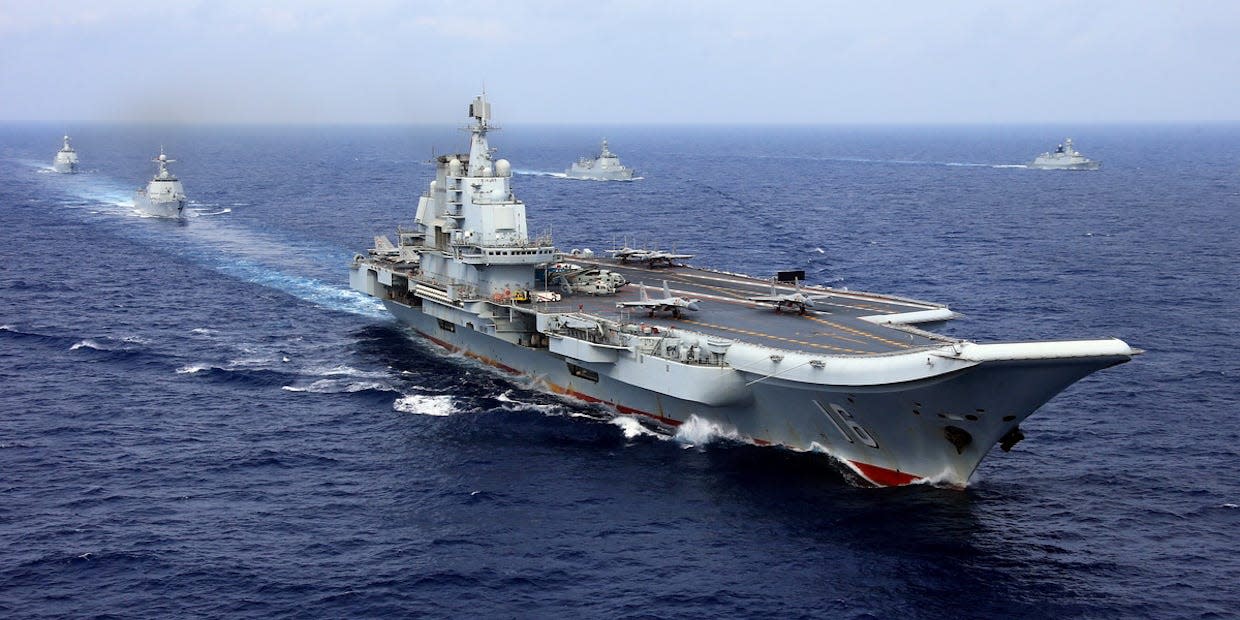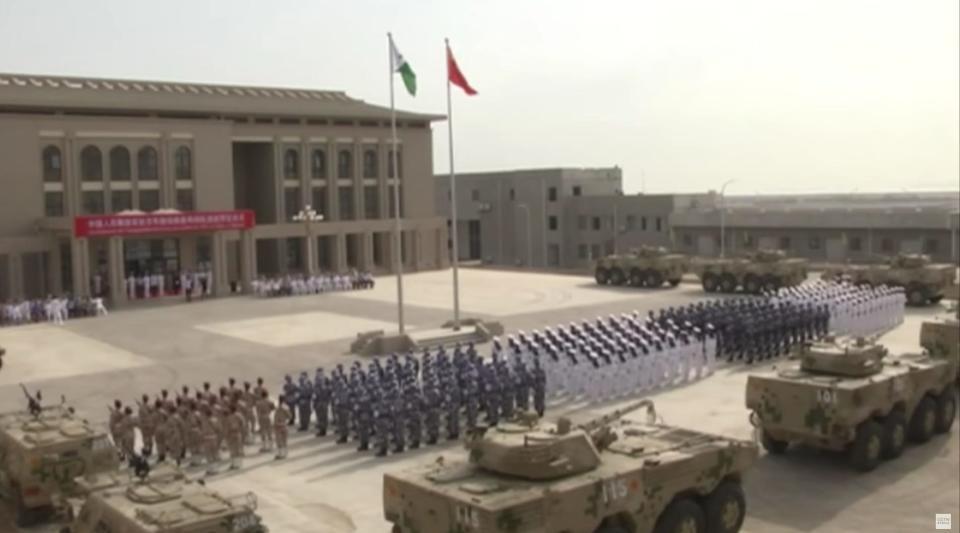China's overseas naval base is now big enough for its aircraft carriers, a top US commander says

- Oops!Something went wrong.Please try again later.
China has expanded its first and only overseas military base, a US commander said Tuesday.
The Africa Command commander said the Djibouti base is now big enough to support aircraft carriers.
China has two aircraft carriers in service with a third one in the works.
China's first overseas military base has expanded and is now capable of supporting the country's growing aircraft carrier force, a US combatant commander revealed Tuesday.
"Their first overseas military base, their only one, is in Africa, and they have just expanded that by adding a significant pier that can even support their aircraft carriers in the future," Gen. Stephen Townsend, the head of US Africa Command, told the House Armed Services Committee, Stars and Stripes reported.
Watch: Security booth roof crushes truck cabin after being knocked down by the vehicle in southern China
China opened a base in Djibouti on the Horn of Africa and began deploying troops there in 2017. Before the base's opening, the Chinese Ministry of Defense said that it "is for the purpose of better undertaking its international responsibilities and obligations and better protecting its lawful interests, instead of seeking military expansion."
Speaking to lawmakers Tuesday, Townsend said the base is becoming a "platform to project power across the continent and its waters," adding that "around the continent, they are looking for other basing opportunities."
Forbes published a report in May 2020 featuring satellite images of Chinese efforts to expand the Djibouti base. The defense writer H I Sutton said at the time that a 1,120-foot pier visible in the images of the military base was "just long enough to accommodate China's new aircraft carriers, assault carriers or other large warships."

The Chinese People's Liberation Army Navy has two aircraft carriers. The Liaoning was developed from the unfinished hull of a discarded Soviet heavy aircraft-carrying cruiser, and the newer Shandong is an improved, indigenously produced version of the Liaoning.
China is working on a third carrier, which is expected to be a larger, more modern flattop with a catapult launch system.
China is also building new Type 075 amphibious assault ships. The first of the new ships was launched in 2019, and sea trials were underway by the following summer.
Because Djibouti offers access to strategic waterways, multiple countries have set up outposts there, including the US. The Chinese naval base is actually just a few miles down the road from the US military base, Camp Lemonnier.
In 2017, Townsend's predecessor, Gen. Thomas Waldhauser, said that the Chinese base's proximity posed "some very significant operational security concerns."
"We've never had a base of, let's just say a peer competitor, as close as this one happens to be. So there's a lot of learning going on," the general told Breaking Defense at the time.
As neighbors in Djibouti, the US and China have not always gotten along. For example, in 2018, The Wall Street Journal reported that Chinese military personnel were targeting US military pilots flying over Djibouti with a high-powered laser.
Africa is one of many areas of strategic competition between the US and China.
"China is of great concern. They are literally everywhere on the continent," Townsend said Tuesday, according to USNI News. "They are placing a lot of bets down. They are spending a lot of money. They built a lot of critical infrastructure."
Read the original article on Business Insider
Watch: Why are China-Taiwan tensions rising?

